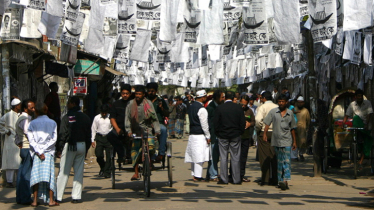
Photo : Collected
It has been observed that nearly 70 percent of mobile internet users across the country use three-day data packages. In response, mobile operator companies discontinued this popular package, along with the 15-day data package.
The regulatory body, Bangladesh Telecommunication Regulatory Commission (BTRC), proposed that the same data offered in the three-day package could be used over seven days at the same price with an aim to benefit customers. However, the operators chose to increase the price by 1.5 times.
For instance, Grameenphone’s 1 GB data, previously priced at Tk 46 for three days, now costs Tk 69 for a new seven-day period. Banglalink and Robi also increased their prices proportionally. In contrast, during the World Cup offer, Grameenphone provided a 1 GB data package for Tk 28 for 24 hours and Tk 97 for seven days. Robi’s seven-day 1 GB data costs Tk 68, 2.5 GB for Tk 98, and 5 GB for Tk 148. Banglalink’s seven-day 1 GB data package is now priced at Tk 69, with a three GB package at Tk 89. Banglalink also introduced a one-day 1 GB data package for Tk 20 in honor of the World Cup. Despite this, each operator is offering unlimited data packages in three different volumes: 25 GB, 50 GB, and 75 GB. Grameenphone’s unlimited package is valid until 2033.
On September 3, the BTRC set a new guideline for mobile data packages, closing the 3-day and 15-day packages and limiting the total number of packages to 40. Mobile operators were instructed to implement these changes from October 15.
BTRC, however, argued that not all the data provided in the three-day package is used, suggesting that extending the period would benefit customers. However, due to the increased prices, the general people, including students, are negatively impacted. As the three-day package has been discontinued, customers have been forced to opt for the seven-day package at an additional cost, affecting those who use low-term internet packs for financial reasons.
BTRC’s reasoning for canceling short-term internet packages, aiming to provide more benefits to customers, reduce fraud, and cut costs, contradicts the interests of 70% of customers.
It was previously believed that mobile internet was harming the intelligence of young generation. But mobile internet these days has become pivotal and beneficial for people from all walks of life-thereby enabling diverse tasks and opportunities. Taking this consideration into account, we believe the telecom operators will reconsider their decision to this effect.
Messenger/Sajib








